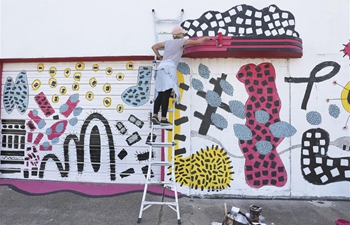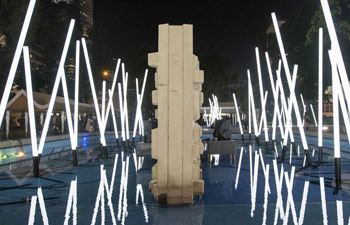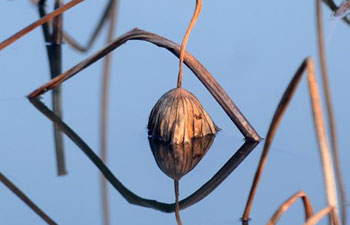CAIRO, Nov. 23 (Xinhua) -- A German-Swiss archaeological mission discovered an ancient carpentry workshop in the Elephantine Island in Upper Egypt's Aswan Province, the Egyptian Ministry of Antiquities said in a statement on Thursday.
Containing many woodworking tools such as axes, the uncovered workshop dates back to the reign of King Thutmose III and the early rule of King Amenhotep II of the 18th Dynasty, some 3,500 years ago, according to the statement.
"Two axes with wooden handles have been found in the workshop," said Professor Cornelius von Pilgrim, director of Cairo-based Swiss Institute of Architectural and Archeological Research on Ancient Egypt.
The professor, also head of the joint German-Swiss mission, noted that one of the two axes was of an ancient Syrian style.
"This axe is of particular importance as it is the first Syrian-style axe discovered in Egypt so far," he said, hinting at the strong relations between Egypt and Syria in ancient history.
On the other hand, an Egyptian archaeological mission discovered an architectural piece made of sandstone near the Temple of Kom Ombo in Aswan, Mostafa Waziri, secretary-general of the Supreme Council of Antiquities, revealed on Thursday.
"Primary studies proved that the unearthed sandstone piece dates back to the reign of Emperor Philip III Arrhidaeus, who ruled Egypt after the death of his half-brother Alexander the Great," said Waziri in a statement, noting the discovery suggests that the Temple of Kom Ombo could be older than known.
The discovered piece carried a number of inscriptions of prayers and praises to Emperor Philip III Arrhidaeus and to the Nile crocodile god Sobek, the master of the ancient city of Kom Ombo.
Egypt has witnessed several big archeological discoveries this year.
In early November, a German-Egyptian archaeological mission discovered remains of the first hellenistic gymnasium ever found in the country in Fayoum province south of the capital Cairo.
A week later, also in Fayoum, an Egyptian-Russian archeological mission uncovered a wooden coffin with a mummy dating back to the Graeco-Roman era.
In early October, archeologists discovered part of a Pharaonic obelisk of about 4,300 years in Saqqara district on the outskirt of Egypt's Giza Province near Cairo.
In May, Egyptian archaeologists uncovered a burial chamber of a 13th Dynasty pyramid in Dahshur archaeological site in Giza, dating back more than 3,600 years.
In the same month, a Spanish team discovered remains of a nearly 4,000-year-old funerary garden outside a tomb in Upper Egypt's city of Luxor, known in ancient Egypt as Thebes.
Earlier in March, an Egyptian-German mission discovered a three-millennia-old statue believed to be of ancient King Ramses II at Cairo district of Matariya.
Unearthed in two parts, the statue was moved to the Egyptian Museum in Cairo to be initially reassembled and restored before being transferred to its final destination at the Grand Egyptian Museum near the Great Pyramids of Giza that is scheduled to be opened in 2018.

















